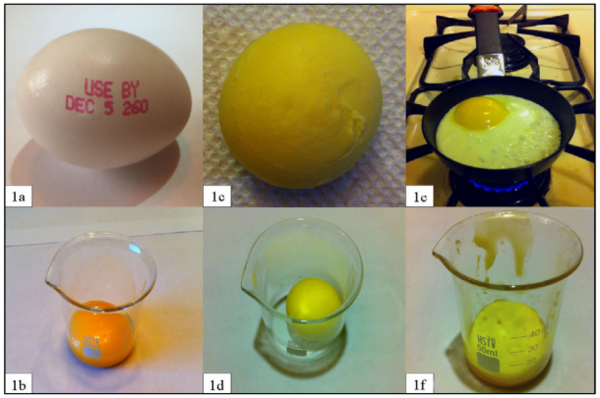The Effect of Cooking Method on the Amount of Fat in an Egg
(1) Pittsburgh Science and Technology Academy, Pittsburgh, Pennsylvania
https://doi.org/10.59720/14-040
Eggs are commonly consumed because they are an inexpensive, readily available source of high-quality protein, but they also contain a significant amount of fat. During the cooking process, the fat in eggs can be oxidized through a process called lipid oxidation, which can cause serious health problems including heart disease and can destroy essential fatty acids and vitamins in eggs. This study assesses the effect of different cooking methods on the amount of fat in an egg. Lipid solvent extraction with acetone was used to test the hypothesis that hard-boiled eggs will contain the least amount of extracted fat (indicating the most oxidized fat) compared to raw and fried eggs. We determined the amount of fat in 36 egg yolk samples, with 12 samples for each cooking method. The results supported the hypothesis and showed that heat oxidizes the fat in eggs. We found that the amount of fat in an egg is inversely proportional to the amount of heat applied to it. This information can raise awareness of harmful health consequences of consuming eggs exposed to high temperatures during cooking and encourage consumers to cook eggs using methods that do not require the egg to be heated to very high temperatures.
This article has been tagged with: